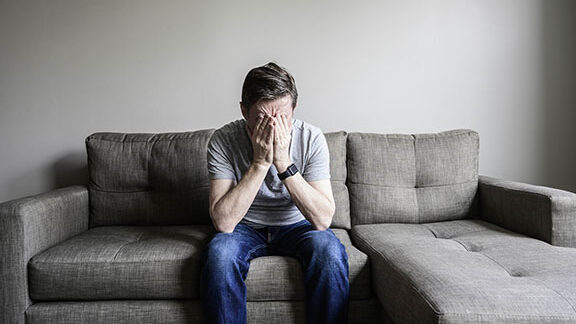
By Judy O’Gorman Alvarez
If it feels like lately more people are experiencing mental health issues and, more importantly, asking for help with those issues, you’re probably right.
Celebrities, including Demi Lovato, Michael Phelps and Pete Davidson, among others, have shared their stories of struggles about seeking help. And with campaigns touting “It’s Okay to Not be Okay” and “You are not alone,” choosing to consult a mental health professional is becoming more common.
But has it reached the point of acceptance the way diabetes, multiple sclerosis or other diseases or conditions have. As with any other disease, there’s no shame in the diagnosis; or in getting help.
According to the National Alliance on Mental Illness (NAMI), most Americans harbor positive views about mental health disorders and treatment, and some 87 percent of American adults agreed that having a mental health disorder is nothing to be ashamed of; 86 percent said they believe people with mental health disorders can get better, according to a Harris poll.
“During May – Mental Health Month – we want to emphasize the importance of recognizing that mental health is a critical component of overall wellness,” said Wendy DePedro, M.S.Ed., CEO and president of the Mental Health Association of Monmouth County (MHA). “This includes prevention services for all, early identification and intervention for those at risk, and access to integrated care and treatment for those who need it, in which people are provided the opportunity to achieve their full potential free from stigma.”
According to DePedro, the average delay between the onset of mental health symptoms and receiving treatment is 11 years. “That means a lot of people – including our youth – spend months or years experiencing mental health challenges before getting a diagnosis.”
The COVID-19 pandemic has cut across age and economic groups, affecting the mental health for even more Americans.
“It’s always been 1 in 5 will experience a mental illness during their lifetime, but this is a little bit different,” DePedro said.
“There’s been an overall uptick in anxiety, depression, suicidal ideation, PTSD, trauma and substance use. Often times compounding factors, such as having been sick themselves, loss of a loved one from the pandemic, and financial difficulties” have exacerbated the problems.
An MHA client shared his story: “As a 30-year-old straight white male, I was always hesitant to seek counseling. I thought that I knew everything that a counselor was going to tell me. After the pandemic, getting married, a new job, and finishing my doctorate, I finally felt that I needed to talk to someone else – and someone outside my network – to get an outsider’s perspective on how to deal with daily stressors that have impacted me.”
Monmouth County Division of Behavioral Health reports multiple mental health providers in the county have long waiting lists due to the increase in those experiencing mental health and substance use concerns. There is also a shortage of licensed qualified professionals and increases in outpatient treatment requests as well as hospitalizations for both adults and youth.
In 2020 Monmouth County launched its Stigma-Free Monmouth initiative, a countywide program that aims to reduce the stigmas associated with mental illness and substance use disorder.
“My generation didn’t talk about any problems with family or finances or anything…All families were ‘perfect.’ I used to be secretive and whisper about going to therapy because of the stigma of admitting anything was wrong. Now I tell everyone I go to therapy and am working on myself.”
– An MHA client
“A negative stigma towards those with this illness or substance use is toxic to the individual’s mental health,” said Commissioner Deputy Director Susan M. Kiley, liaison to the Division of Behavioral Health, at the time. “Monmouth County residents need to be kind and have empathy towards those with behavioral health illnesses and encourage them to seek treatment.”
Asking for help is not always easy. People worry that they may be perceived as being weak, or fear they may be ostracized or it may influence current or future employers. They often also believe treatment will be costly.
“My generation didn’t talk about any problems with family or finances or anything,” said K, an MHA client. “All families were ‘perfect.’ I used to be secretive and whisper about going to therapy because of the stigma of admitting anything was wrong. Now I tell everyone I go to therapy and am working on myself.”
Rich Ambrosino, executive director of Shore House, a unique recovery program offering meaningful social, educational and employment opportunities for people living with mental illness, said the group is receiving more referrals per month than they ever have.
“And we are seeing a lot of younger members,” he said. A year ago the average member age was close to 60, now they’re seeing more members in their 20s.
“I think because some of the stigma has been removed, younger folks are asking for help more than they did in the past,” he said. In past years they would struggle and often self-medicate. “Now we see younger members who haven’t struggled with drug or alcohol addiction prior to their diagnosis because they’re getting into the system earlier because they’re asking for help, which is a good sign.”
He attributes much of it to the influence of prominent celebrities – athletes, entertainers and others. “They’re coming out and speaking openly about their own battles with mental illness.”
Ambrosino said, “The culture we’ve been trying to build here is that this is their clubhouse and they should be proud of it… The whole point of volunteering for activities and jobs that make the clubhouse go is to teach transferable skills. And if you want to go back to work, you have those skills to go back to work.”
Club member Tina has cerebral palsy and has been diagnosed with severe depression and anxiety. She feels she has found her place at Shore House and considers herself a proud member. “I came in for a tour and within five minutes, I fell in love. I felt so loved and cared for and they were all willing to, like, help me.”
Working with her therapist and fellow members has helped Tina, who is happy in her job at Green Natural Foods.
“I’m definitely a survivor. Because honestly, life is very challenging.”
“It’s never too early to seek treatment for your mental health,” said DePedro. “Intervening effectively during early stages can save lives and that’s critically important for people living with mental health conditions.”
The article originally appeared in the May 5 – 11, 2022 print edition of The Two River Times.














